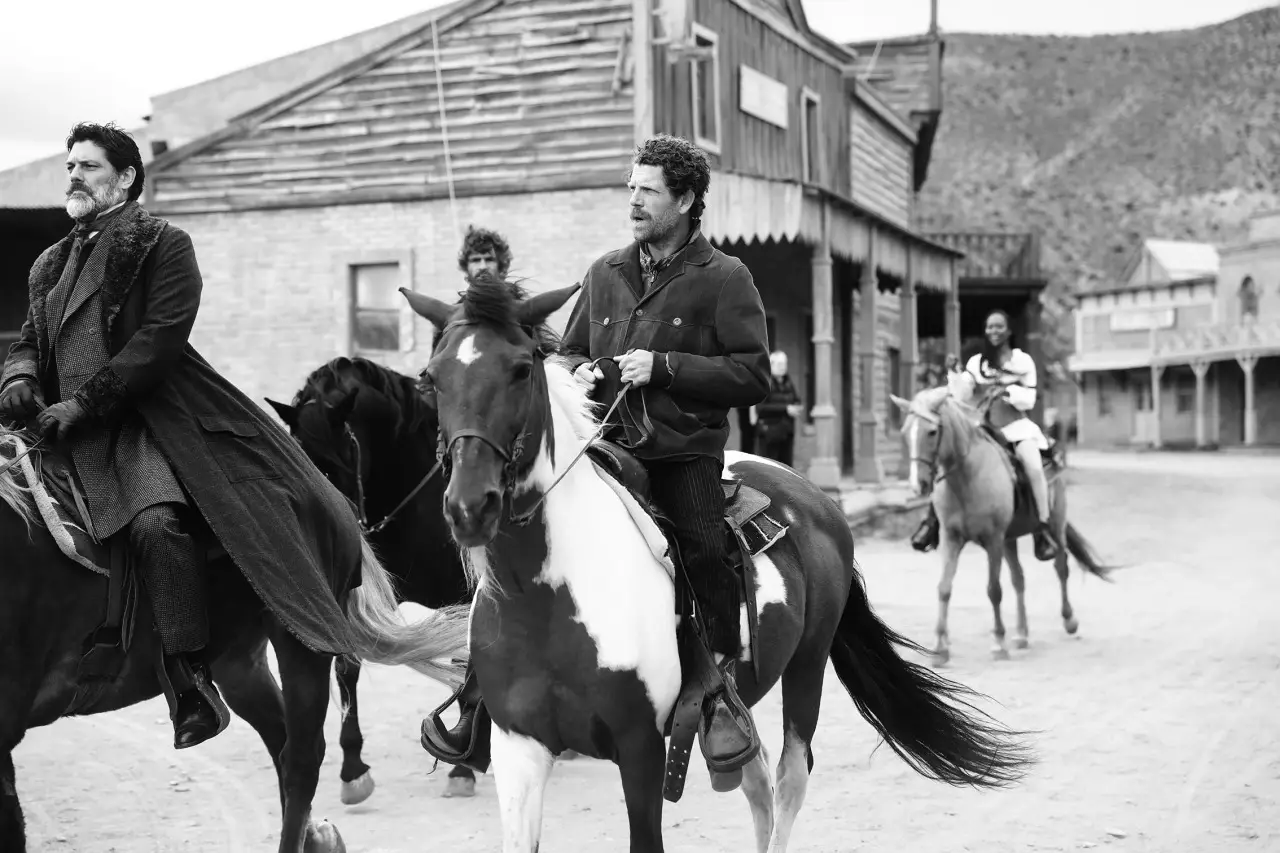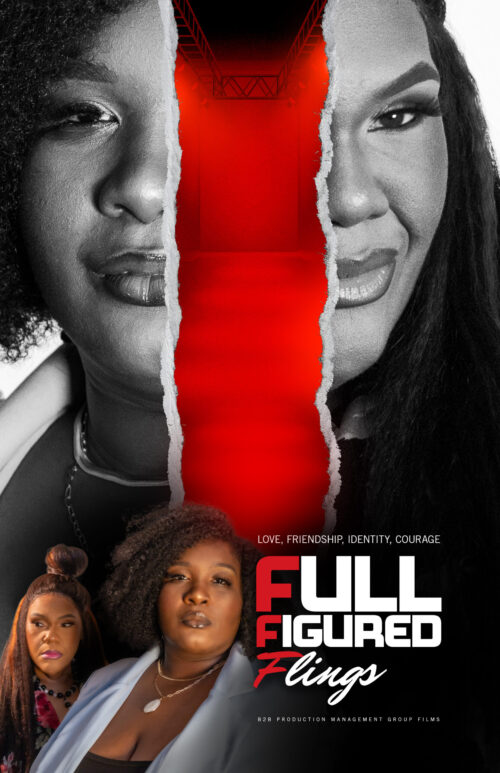We Speak Actors
Brendan McNamee talks acting, directing, and his appearance in ‘The Penguin Lessons

Brendan McNamee, a graduate of the Academy of Live and Recorded Arts (ALRA) in 1997, has carved a unique path in the film industry, seamlessly blending his skills as an actor, director, and producer. His journey reflects a deep understanding of both the artistic and technical facets of filmmaking.
Could you tell us about your journey into the film industry?
I graduated from ALRA in ’97. It was the first drama school to teach television acting. It had a TV and Radio studio, multi-cameras, and vision mixing. I learned many of the behind-the-camera jobs. The logic being that if you were informed about what was happening around you — when, how, and why — it would help you as an actor. After drama school, I did a few plays (Talk Radio), and then I started writing and directing short films, corporate videos, and eventually music videos. My company, Blunt Films, made hundreds of pieces of content over the years. Of course, we didn’t call it ‘content’ back then. I made an independent feature film, Miles Away, which debuted at the 2009 Raindance Film Festival and won Best Film in New Jersey and Hawaii.
What experience do you have as a producer, and how has it influenced your career?
As a producer (and director, editor), I worked on so many budgets where we had to make the money stretch. (Is there any other type of budget?) When I graduated from drama school, filmmakers like Linklater, the Dogme gang, and The Blair Witch Project all showcased what could be done with a great story and creative filmmaking. I remember shooting background plates and special effects plates for a Franz Ferdinand video on a DV camera hanging out of the boot of my car in the Sussex countryside. When I described what I was doing, there was a bit of ‘pooh-poohing’ of what I was trying to achieve, but once the director and editor saw the results and we had composed the shots, they were very happy. As long as it is believable in the frame, it works.

“Post production is a bit like good manners. No one notices good manners, only bad manners.”
Which projects stand out as your best work as an actor?
I’m not sure that I could say I’ve done ‘my best work.’ I feel that every time I am on camera, it is so different from the previous experience. Nothing is comparable. With Olivier Assyass on Wasp Network, I pitched my first take a little in the ‘middle,’ and he was happy with that, which made me feel I hadn’t given him enough. I am still learning, but I think it has been best when I’ve hit it out of bounds and been asked to rein it in, rather than starting somewhere conservative and having nowhere to go. The fight scene in Rich Flu is incomparable to the staff room we inhabit in ‘The Penguin Lessons’, but no less exciting. I have also recently shot my first TV series in Spanish – El Centro.
“I have been very lucky to have worked with Penelope Cruz, Paco Leon, Steve Coogan, Jonathan Pryce, Edgar Ramirez, Mary Elizabeth Winstead and Tristan Ulloa…”
How was your experience working on ‘The Penguin Lessons’?
I had to suppress my star-struckness for Peter Cattaneo, Steve Coogan, and Sir Jonathan Pryce in our scenes. Living in Spain and working with Spanish legends (like Paco León) is maybe a little easier because I didn’t grow up with their work. The three men above have produced millions of hours of entertainment that I have happily consumed throughout my life. During one of our scenes that wasn’t quite going right, I asked Steve, “How can I make it better?” I needed to acknowledge that it was partly my fault that it wasn’t quite right — not so much Brendan to Steve, but actor to actor. He told me to just throw it away more, and then as I did the scene began to settle better. It was great to feel it was ‘wrong’ before we made it ‘right.’
Who would you recommend to watch The Penguin Lessons, and why?
The Penguin Lessons is a great family film. It’s sweet and has that dry wit we love Mr. Coogan for. I think it’s a film for everyone, and if you are bilingual, even more so. Quite frankly, everyone should see everything that Steve Coogan has ever made. I couldn’t put him on a higher pedestal. Oh, and of course, you should love the art teacher, Mr. Cooper.
‘The Penguin Lessons,’ directed by Peter Cattaneo, is slated for theatrical release in the UK on April 18th. The film follows an Englishman’s personal and political awakening after adopting a penguin during a tumultuous period in Argentine history.
The cast includes Steve Coogan, Jonathan Pryce, Vivian El Jaber, Björn Gustafsson, Alfonsina Carrocio, and David Herrero.
Featured photo credit: Claire Witteveen
We Speak Actors
Full-Figured Flings Teaser Nears 14K Views – Director of Photography Offers Special Father’s Day Release

Back 2 the Basics Production Management Group is proud to announce the official teaser premiere for FFF: Full-Figured Flings, a bold and unapologetic new film celebrating full-figured women and challenging the norms of beauty in Hollywood. Clocking in at just 46 seconds, the teaser doesn’t waste a moment, delivering a powerful visual and emotional punch that sets the tone for a project rooted in body positivity, size inclusivity, and cultural truth.
Premiering ahead of the 20th anniversary of Phat Girlz (2006), FFF serves as both homage and evolution. The film expands the conversation around colorism, sizeism, and shapeism, spotlighting women who have often been cast aside, sidelined, or silenced.

“This teaser is more than a preview—it’s a declaration,” said Lillie Mae Jones, creator and producer. “FFF is our love letter to the women who’ve never been centered but have always been essential. We’re not just telling stories—we’re shifting the lens.”
FFF: Full-Figured Flings is currently in development as a non-union independent production, with plans to release in 2026. The film invites audiences and allies to follow, support, and amplify the message through community engagement, open casting calls, and creative collaborations—including the launch of a nationwide call for a “Big Girl Anthem” to serve as the film’s official theme song.


Accept the Challenge…
The buzz is building fast around the highly anticipated full-figured fashion experience FFF, and now there’s a challenge on the table that fans won’t want to miss.
After racking up 11,000 views in less than 10 days, the official teaser video for FFF on YouTube is quickly gaining momentum. And now, the film’s Director of Photography, Dominique Perry, has thrown down a bold offer:
“If we hit 20,000 views before Saturday, June 14th, I’ll drop an exclusive second teaser on Father’s Day.”
This is more than a film—it’s a movement. FFF is a high-fashion, high-impact visual celebration of full-figured women taking a stand for representation, inclusion, and power on and off the runway.
Here’s how you can help make it happen: Watch the teaser now on YouTube. Like, comment, and subscribe. Share it with your community and post why YOU stand in solidarity with full-figured women
Watch here for a taste of the boldness, beauty, and energy
-

 We Speak Volleyball1 week ago
We Speak Volleyball1 week agoBuilt for the Pressure, Wired to Compete: Loretta Duby’s Passionate Pursuit of Purpose Through Volleyball
-

 We Speak Soccer5 days ago
We Speak Soccer5 days agoNo Entry Allowed: How Austin Fortner Is Becoming a Standout Keeper with Confidence and Control
-

 We Speak Football6 days ago
We Speak Football6 days agoFrom Snap to Touchdown: How Niah Reyes Plays the Game with Heart and Hustle
-

 We Speak Coaches7 days ago
We Speak Coaches7 days agoCoach of Culture, Heart of a Movement: The Extraordinary Journey of Daniel Moore, Pioneer of Women’s Flag Football and Builder of Young Lives











